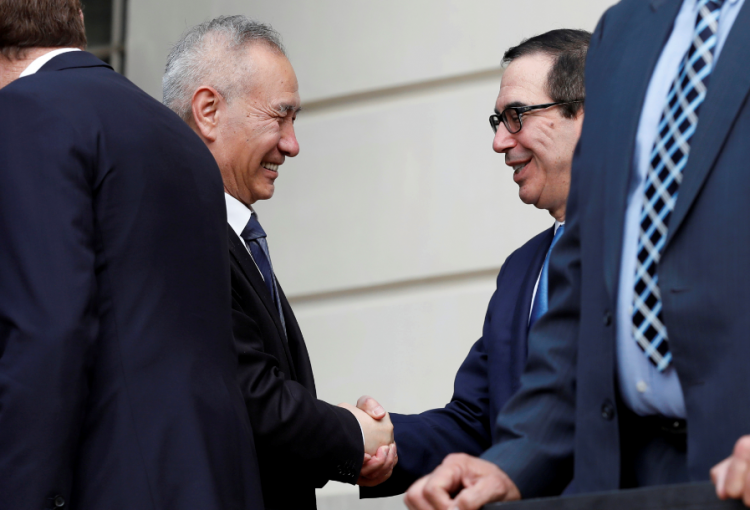President Trump is planning to meet with the head of the Chinese negotiating team, Chinese Vice Premier Liu He when the trade talks conclude on Friday Eastern Daylight Time.
The resumed trade talks that began on October 10, came days after the US Department of Commerce blacklisted 28 Chinese companies and both countries implemented reciprocal visa bans.
Still, China is narrowing the scope of the negotiation to trade matters only and plans to have other issues discussed on a separate meet.
If the talks remain inconclusive, not only will there be about $250 billion worth of Chinese goods levied with tariffs on October 15, but the US and China again will also slap billions of dollars worth of tariffs on each other's goods on December 15.
US businesses fear losing access to the world's largest consumer market.
Small businesses are getting terribly affected by the 25% tariffs on many Chinese imports to which they already paid $7 billion just in August.
Deepa Gandhi, chief operating officer of the New York-based handbag company Dagne Dover said the tariffs are a "major, major challenge" adding that it is better if businesses could just "focus on growing and building instead of mitigating tariffs."
Wall Street is always on edge especially when economic trouble stared showing in September when an index of a US manufacturing plant plunged to its lowest in 10 years.
Gone are the effects of factory job growth that happened during the first two years of the Trump administration.
Craig Allen, president of the US-China Business Council is aware that the "too many issues" won't get all solved during the talks but is hopeful for a "cessation of hostilities" that might hopefully include stopping the new US tariffs on Chinese goods.
Allen said this is a good ground to move on from to further negotiations toward an accord.
Though Democrats are supportive of a tough approach to China, many of them are now reacting negatively to President Trump's moves and reliance on tariffs.
Sen. Maria Cantwell (D., Wash.) said it is already clear from the latest report on U.S. manufacturing that this approach to trade is hurting the country.
Economists said the tariffs and uncertainty brought about by the trade issues could trigger or worsen an economic contraction in the US because global growth is slowing down.
Business groups want Mr. Trump to abandon plans of raising tariffs to 30%, the one set to happen on Oct. 15.
Business groups also want the plans on Dec. 15 of imposing new 15% tariffs on $156 billion worth of smartphones, apparel, and other consumer goods to get dropped.
Some of Mr. Trump's supporters want a resolution with GOP (Grand Old Party), Republican donor Sheldon Adelson warning Mr. Trump on how the issues on trade will not only impact US economy but also his election prospects.





